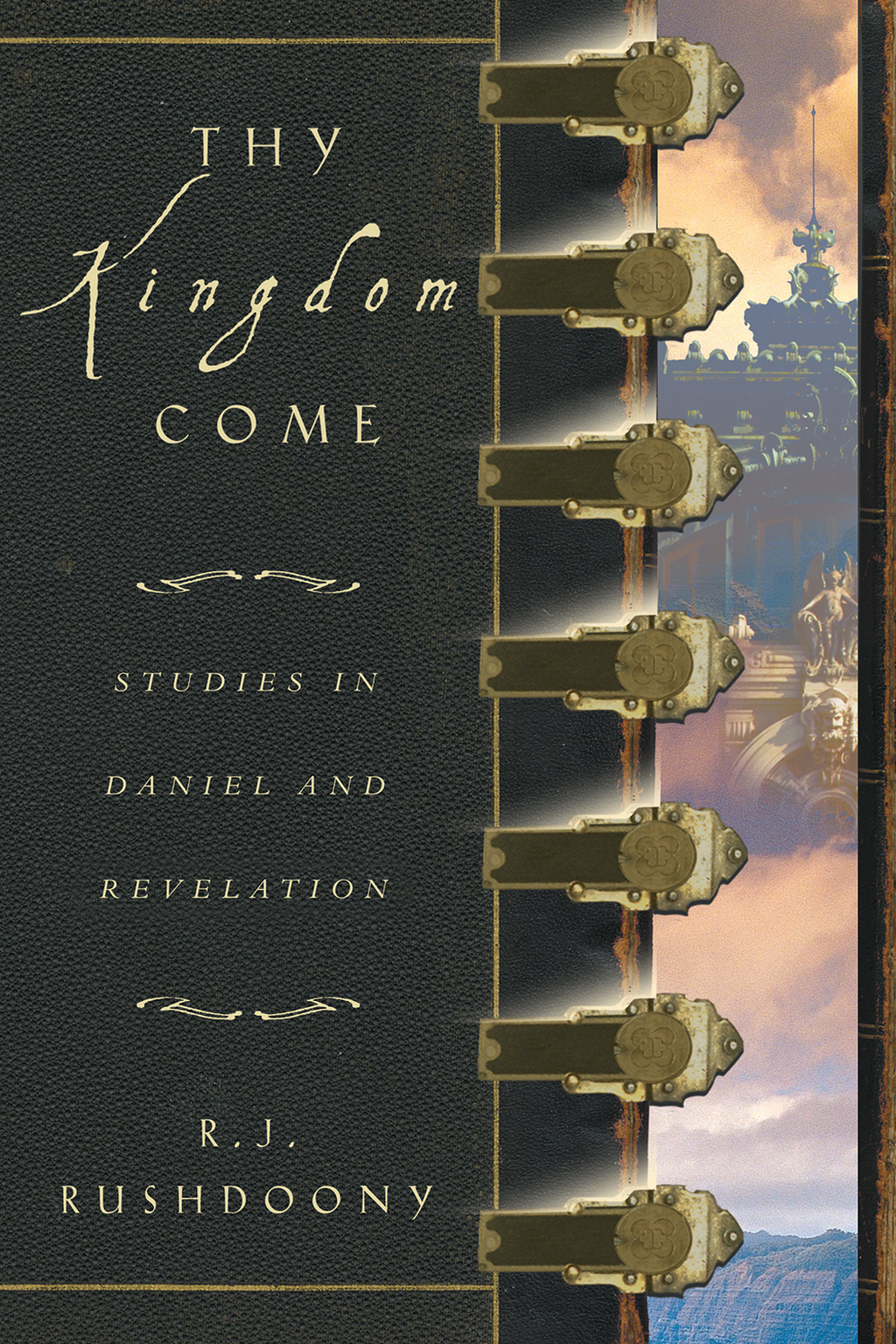
Thy Kingdom Come: Studies in Daniel and Revelation
Revelation gives us man's victory in Christ over sin and death. The vast and total victory, in time and eternity, set forth by John in Revelation is too important to bypass. This victory is celebrated in Daniel and elsewhere in the Bible. We are not given a Messiah who is a loser. These eschatological texts make clear that the essential good news of the entire Bible is victory, total victory.
, eBook , Paperback

- R. J. Rushdoony,
First published in 1970, this book helped spur the modern rise of postmillennialism. Revelation's details are often perplexing, even baffling, and yet its main meaning is clear: it is a book about victory. It tells us that our faith can only result in victory. "This is the victory that overcomes the world, even our faith" (1 John 5:4). This is why knowing Revelation is so important. It assures us of our victory and celebrates it. Genesis 3 tells us of the fall of man into sin and death. Revelation gives us man's victory in Christ over sin and death. The vast and total victory, in time and eternity, set forth by John in Revelation is too important to bypass. This victory is celebrated in Daniel and elsewhere in the Bible. We are not given a Messiah who is a loser. These eschatological texts make clear that the essential good news of the entire Bible is victory, total victory.

- R. J. Rushdoony
Rev. R.J. Rushdoony (1916–2001), was a leading theologian, church/state expert, and author of numerous works on the application of Biblical law to society. He started the Chalcedon Foundation in 1965. His Institutes of Biblical Law (1973) began the contemporary theonomy movement which posits the validity of Biblical law as God’s standard of obedience for all. He therefore saw God’s law as the basis of the modern Christian response to the cultural decline, one he attributed to the church’s false view of God’s law being opposed to His grace. This broad Christian response he described as “Christian Reconstruction.” He is credited with igniting the modern Christian school and homeschooling movements in the mid to late 20th century. He also traveled extensively lecturing and serving as an expert witness in numerous court cases regarding religious liberty. Many ministry and educational efforts that continue today, took their philosophical and Biblical roots from his lectures and books.